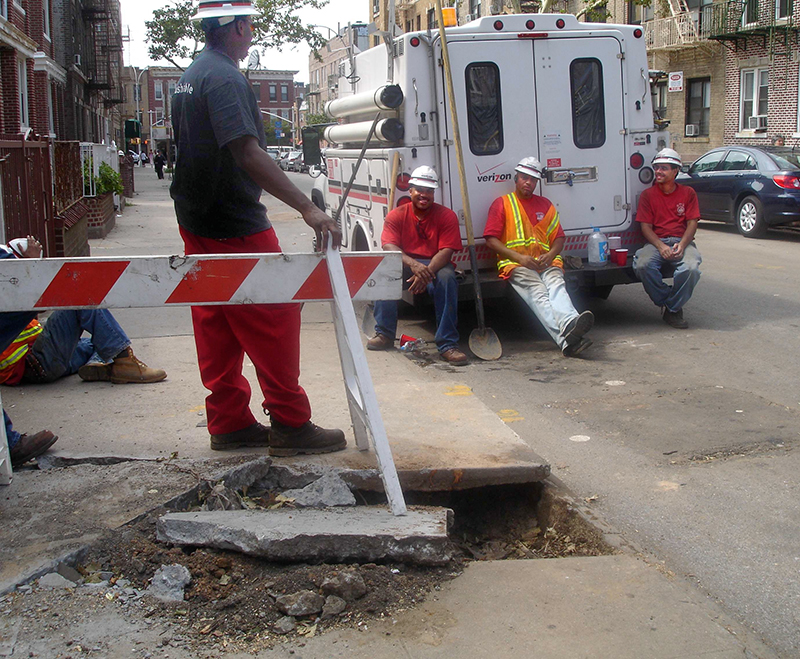Verizon hangs up on landline customers in Brooklyn
Trump’s FCC reduces consumer protections

Numerous complaints about Verizon slow-walking repairs to landlines surfaced in Brooklyn Heights this summer. Consumer watchdogs say it’s part of a nationwide plan to rip out copper landlines and replace them with fiber and wireless. Shown: Verizon workers take a break while repairing damage from a tornado on 69th Street in 2007. Eagle file photo by Odelia-Bitton
If you’re a Verizon customer who uses a traditional landline in your home or business, you may soon be facing an unpleasant surprise.
Over the summer in Brooklyn Heights, numerous customers, with no warning, discovered their phones no longer had a dial tone.
Kevin Carberry, an independent real estate broker specializing in Brooklyn Heights brownstones, co-ops and condos, told the Brooklyn Eagle that the phones at the six work stations in his home office on Columbia Heights were recently shut off with no warning.

Brooklyn Heights
View MoreRead the Brooklyn Height's Press and Cobble Hill News. Find out more about Brooklyn Height's History here.